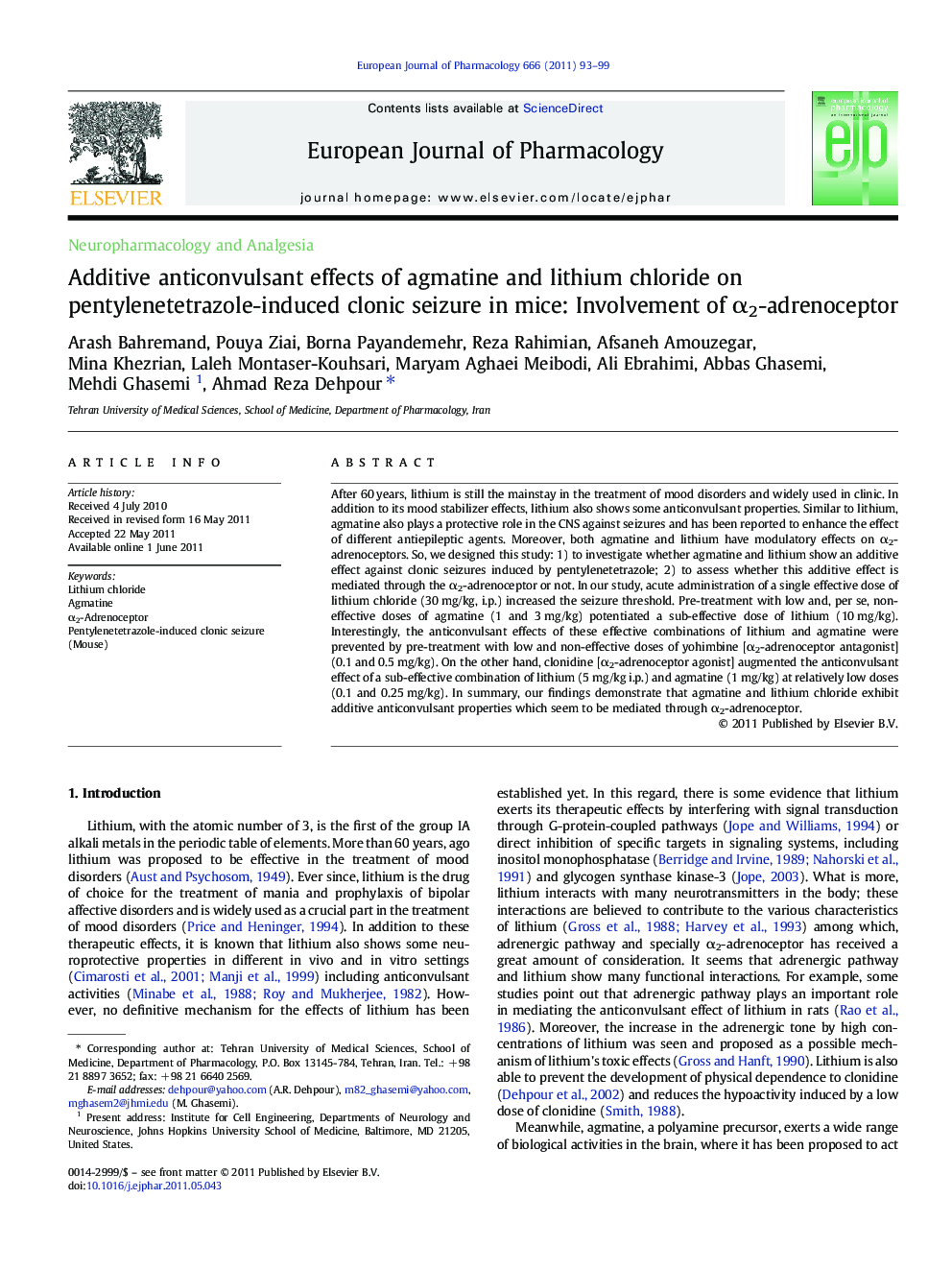| Article ID | Journal | Published Year | Pages | File Type |
|---|---|---|---|---|
| 2532629 | European Journal of Pharmacology | 2011 | 7 Pages |
After 60 years, lithium is still the mainstay in the treatment of mood disorders and widely used in clinic. In addition to its mood stabilizer effects, lithium also shows some anticonvulsant properties. Similar to lithium, agmatine also plays a protective role in the CNS against seizures and has been reported to enhance the effect of different antiepileptic agents. Moreover, both agmatine and lithium have modulatory effects on α2-adrenoceptors. So, we designed this study: 1) to investigate whether agmatine and lithium show an additive effect against clonic seizures induced by pentylenetetrazole; 2) to assess whether this additive effect is mediated through the α2-adrenoceptor or not. In our study, acute administration of a single effective dose of lithium chloride (30 mg/kg, i.p.) increased the seizure threshold. Pre-treatment with low and, per se, non-effective doses of agmatine (1 and 3 mg/kg) potentiated a sub-effective dose of lithium (10 mg/kg). Interestingly, the anticonvulsant effects of these effective combinations of lithium and agmatine were prevented by pre-treatment with low and non-effective doses of yohimbine [α2-adrenoceptor antagonist] (0.1 and 0.5 mg/kg). On the other hand, clonidine [α2-adrenoceptor agonist] augmented the anticonvulsant effect of a sub-effective combination of lithium (5 mg/kg i.p.) and agmatine (1 mg/kg) at relatively low doses (0.1 and 0.25 mg/kg). In summary, our findings demonstrate that agmatine and lithium chloride exhibit additive anticonvulsant properties which seem to be mediated through α2-adrenoceptor.
Research highlights► Lithium has anticonvulsant effects. ► Agmatine augment effects of lithium. ► Alpha-adrenergic system mediates this process.
